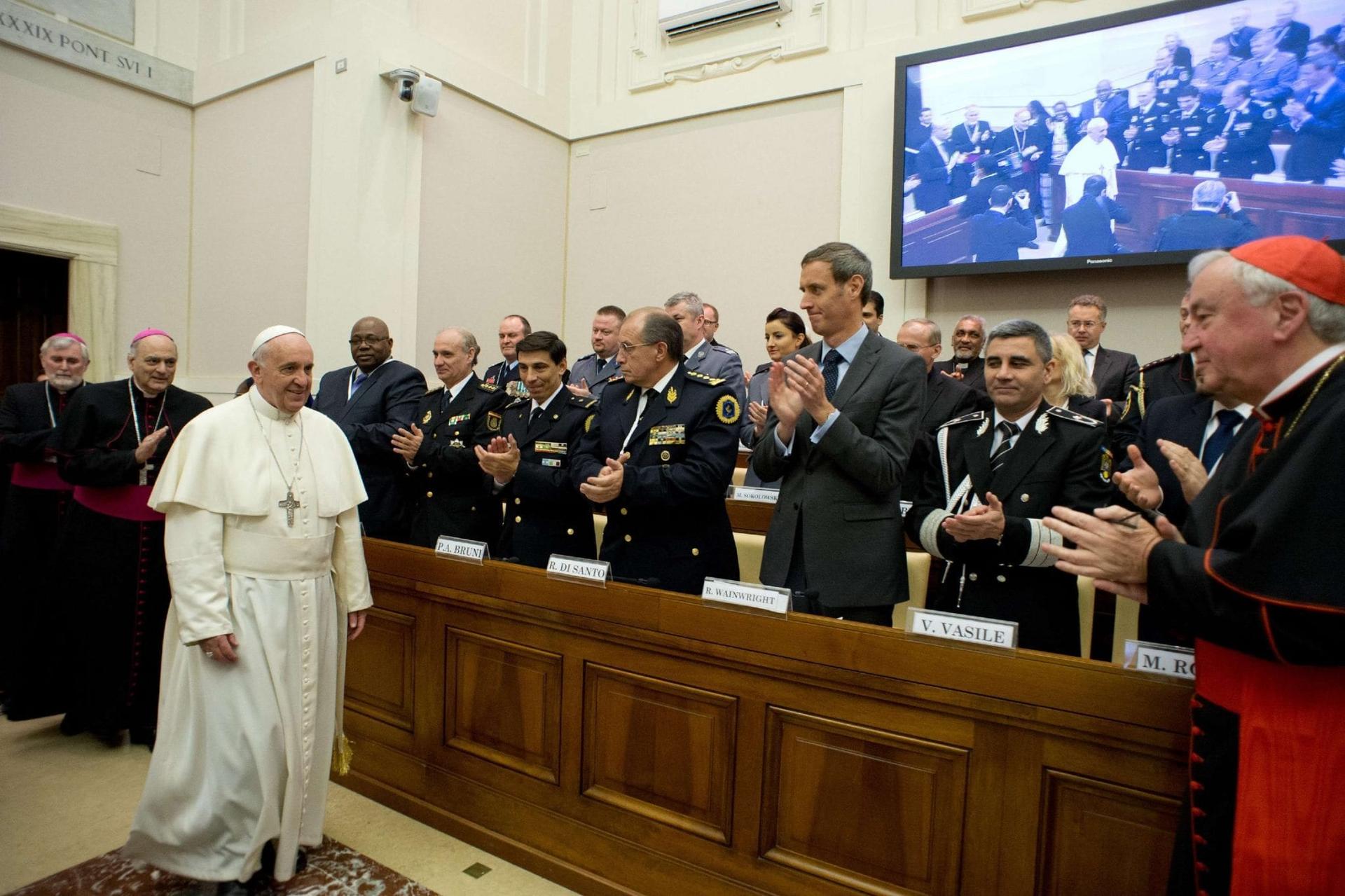Today the United Nations and the international community marks modern slavery day — or as it is officially known, the World Day Against Trafficking in Persons — which spotlights the countless ways women, men, and children are exploited for both work and sex.
While many are tempted to think of slavery as a relic of the past, or at least limited to remote areas of the globe, the tragic reality is that it’s never been more widespread as it is today, and it reaches right into the heart of our wealthy nations.
According to the International Labour Organization, a stupendous 21 million people are victims of forced labor globally. Some estimates put that number even higher. In recent years governments and policy makers across world have started to cooperate to put an end to this stain on our age.
A major player in this initiative is the Catholic Church, and the anti-slavery movement has no greater champion than Pope Francis, who comes at this with a long history. In Buenos Aires he invested huge time in assisting trafficked prostitutes and seamstresses and confronting the mafia bosses who profit from their suffering.
At a conference earlier this month at the United Nations, Archbishop Bernardito Auza, the Holy See’s representative to the United Nations observed how “Pope Francis has taken the Church’s advocacy and action to another level through his aggressive and incessant denunciation of this social cancer.”
Similar praise is offered by John McCarthy, who just returned home after serving as Australia’s Ambassador to the Holy See for the past three years.
“With the passing of Nelson Mandela, Pope Francis has become our world’s most respected and inspirational moral leader,” he told Crux.
“When serving in Rome, I witnessed the ‘Francis Effect’ on many issues, none more so than his constant demand that modern slavery and human trafficking be eradicated immediately and everywhere,” the ambassador added. “His leadership and strong words have made this affront to human dignity press heavily on the conscience of the contemporary world.”
Early on in his papacy, Francis began to speak against trafficking as an “open wound on the body of contemporary society,” “a crime against humanity,” and an “atrocious scourge.” And he accompanied these strong words by serious action.
In December 2014, Francis gathered with religious leaders from faiths around the world to commit to eradicating “modern slavery across the world by 2020 and for all time.”
This pledge was followed by a landmark announcement that the Vatican would slavery-proof its supply lines, ensuring that no forced labor is involved in the production of any of its goods or services.
Along with this, the Vatican facilitated the commitment of the Consumer Goods Forum, a collective of over 400 of the world’s biggest supermarkets and food manufacturers, to do the same.
In this way, the Vatican has become a world leader in showing how to meet the United Nation’s Sustainable Development Goals, which include a commitment to “end abuse, exploitation, trafficking and all forms of violence against and torture of children by 2030.”
Similar commitments are now being matched by some of the most powerful figures in the world. The United Kingdom’s new Prime Minister, Theresa May, has taken on this cause with impressive vigor.
As Home Secretary, she partnered with the Archbishop of Westminster, Cardinal Vincent Nichols, to join forces with the Vatican’s anti-trafficking initiatives, and was one of the inaugural participants in the Santa Marta Group, where law enforcement officers and Church officials met to plan a response to this growing tragedy.
May told the Pope: “Your Holiness, the people here and many more around the world, will look straight into the eye of this crime and we will do everything in our power to free the vulnerable people who find their lives so cruelly stolen from them.”
She is now positioned to become one of the world’s most outspoken leaders in this regard—and to raise the bar for other world leaders to follow suit.
In the United States, meanwhile, the government has relied on the work of the Church to combat a growing rise of “sea slaves” or maritime trafficking as it is more formally called. These victims are often trapped at sea for years with impoverished living conditions and treacherous work.
The U.S. government has partnered with the U.S. bishops through the Coalition of Organizations and Ministries Promoting the Abolition of Slavery at Sea (COMPASS) to crack down on this practice, prompting recent praise from the State Department on the Church’s moral leadership in this area.
Our globalized world has created a capacity for remarkable partnerships across national borders. Yet along with this, the possibilities for exploitation have significantly increased, and it requires transnational cooperation and global initiatives to clamp down on it.
That means a major effort by police in different countries, who depend on the intelligence from charities and civil society organizations close to the victims — which is where the Church is uniquely placed to help.
But combatting modern slavery also requires mobilizing public opinion to pressure our political leaders to make this a priority. Just as the campaign to end the slave trade in the nineteenth century became effective when ordinary people were galvanized, so today’s slavery needs everyday folks to care about this more.
In Pope Francis’ consistent rejection of the throwaway culture—a world that reduces laborers to nameless faces, a society that turns sex into an industry, and trade into tyranny—the world hears a clarion call to become aware of the web of relationships, be they professional or personal, behind the products and services we consume.
His rejection of the growing culture of commodification and consumerism contains an invitation for a new way of seeing the world — as an interconnected creation: the cheap product you buy might just have a history of personal misery behind it.
Pope Francis, the anti-slavery leader of our day, invites us to be aware of that, and not cross to the other side.















